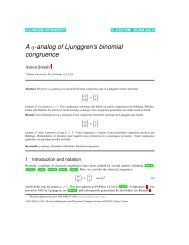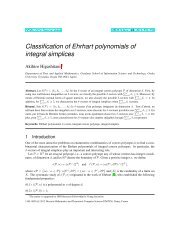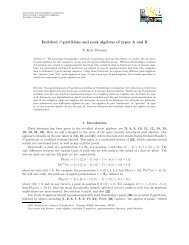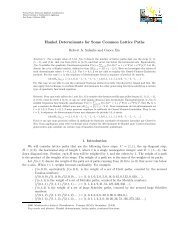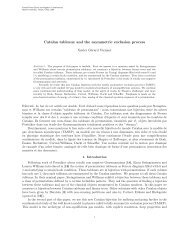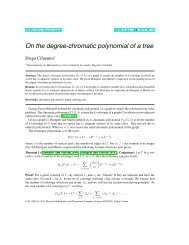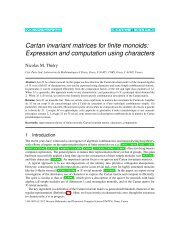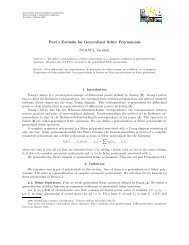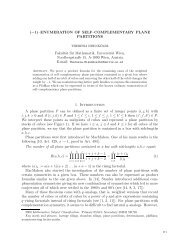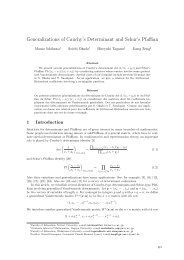Euler's partition theorem and the combinatorics of -sequences
Euler's partition theorem and the combinatorics of -sequences
Euler's partition theorem and the combinatorics of -sequences
You also want an ePaper? Increase the reach of your titles
YUMPU automatically turns print PDFs into web optimized ePapers that Google loves.
An l-nomial <strong><strong>the</strong>orem</strong> [LS]: An analog <strong>of</strong><br />
is<br />
n∑<br />
k=0<br />
( n<br />
k)<br />
z k = (1 + z) n<br />
n∑<br />
( ) n (l)<br />
z k =<br />
k<br />
k=0<br />
n−1<br />
∏<br />
i=0<br />
(u i−(n−1)/2<br />
l<br />
+ v i−(n−1)/2<br />
l<br />
z) =<br />
(1 + ∆ (l)<br />
1 z + z2 )(1 + ∆ (l)<br />
3 z + z2 ) · · · (1 + ∆ (l)<br />
n−1 z + z2 )<br />
(1 + z)(1 + ∆ (l)<br />
2 z + z2 )(1 + ∆ (l)<br />
4 z + z2 ) · · · (1 + ∆ (l)<br />
n−1 z + z2 )<br />
n even<br />
n odd



